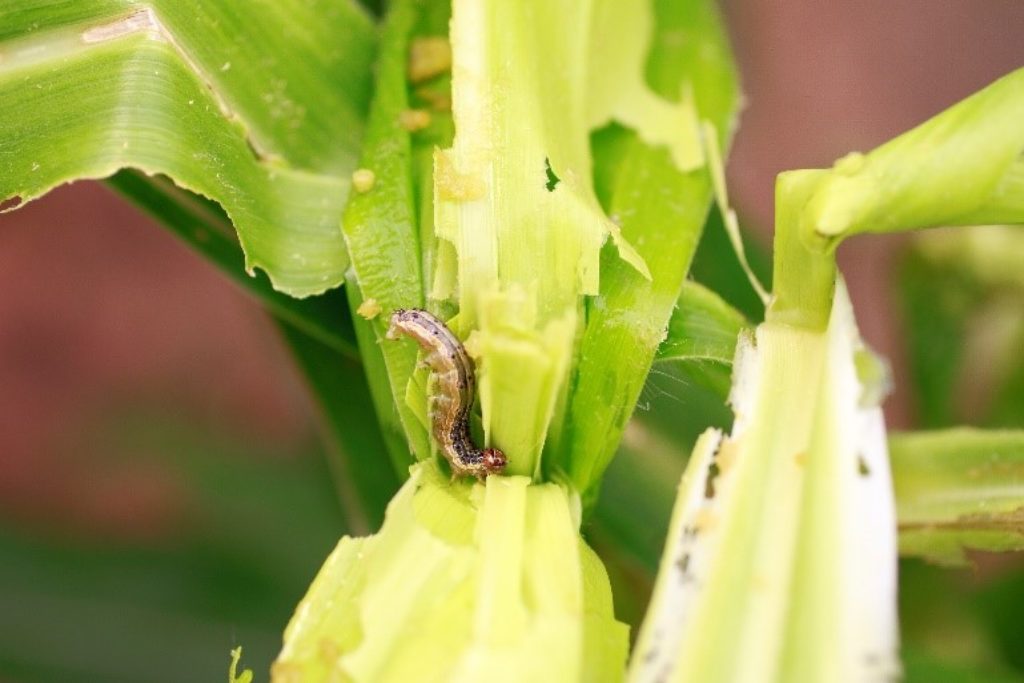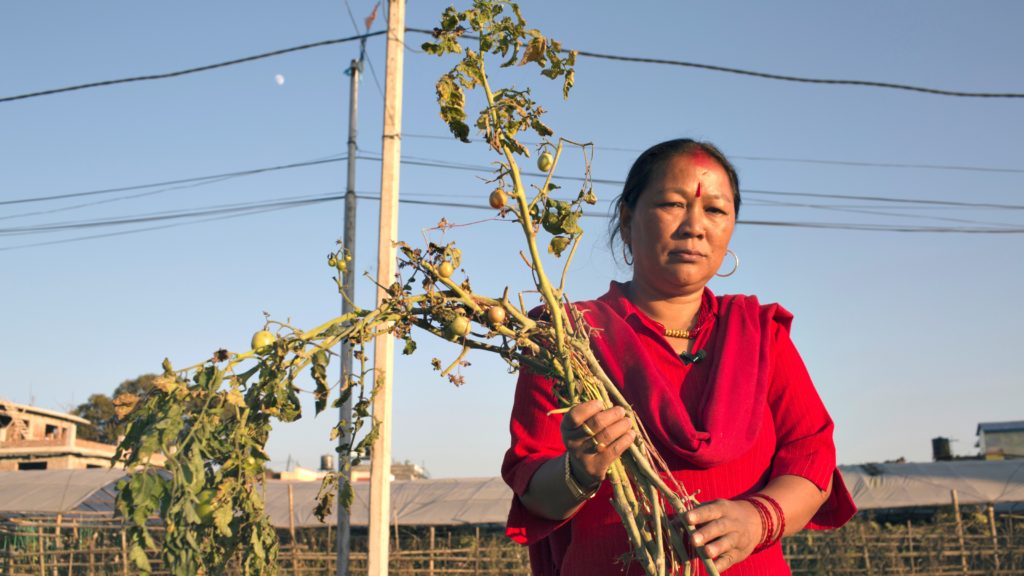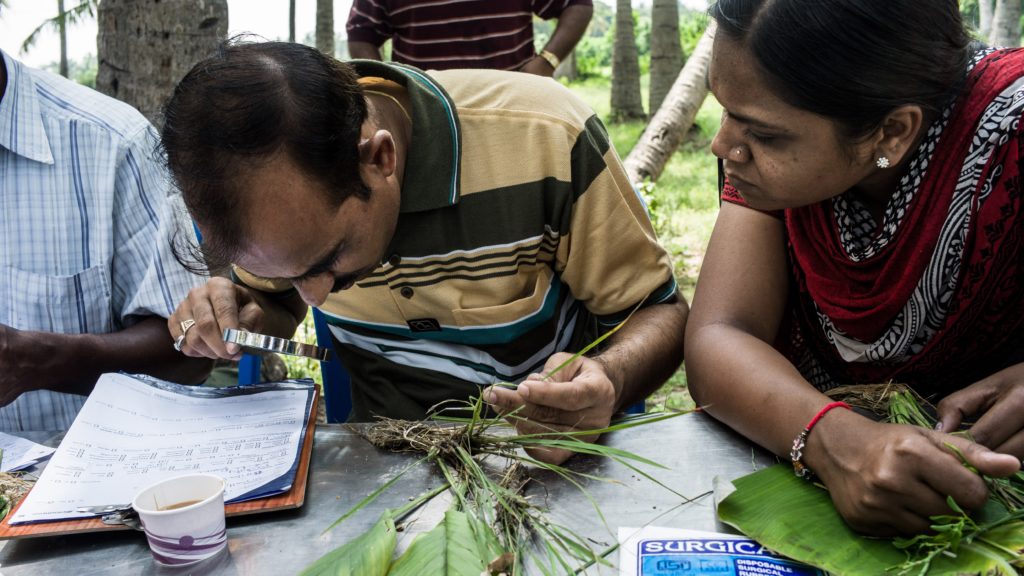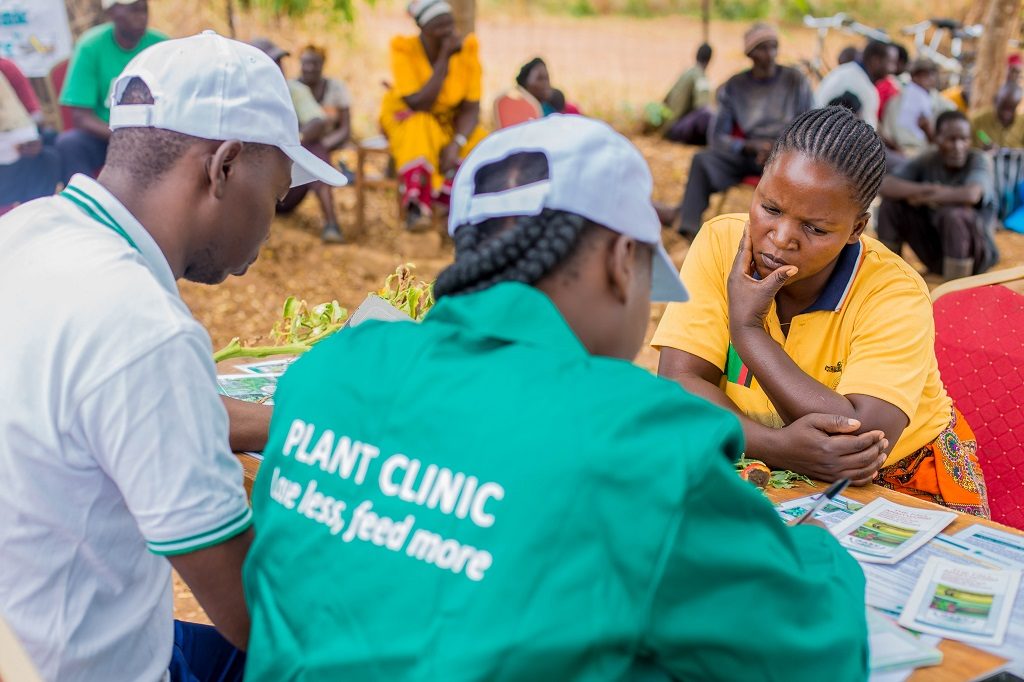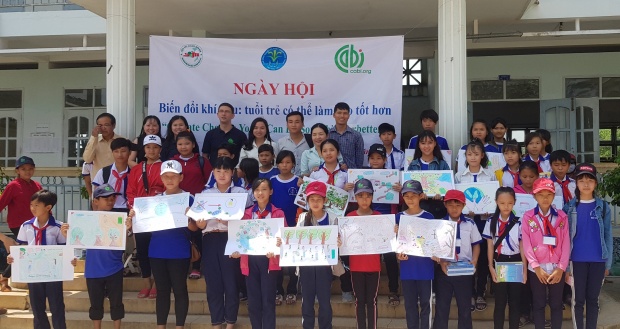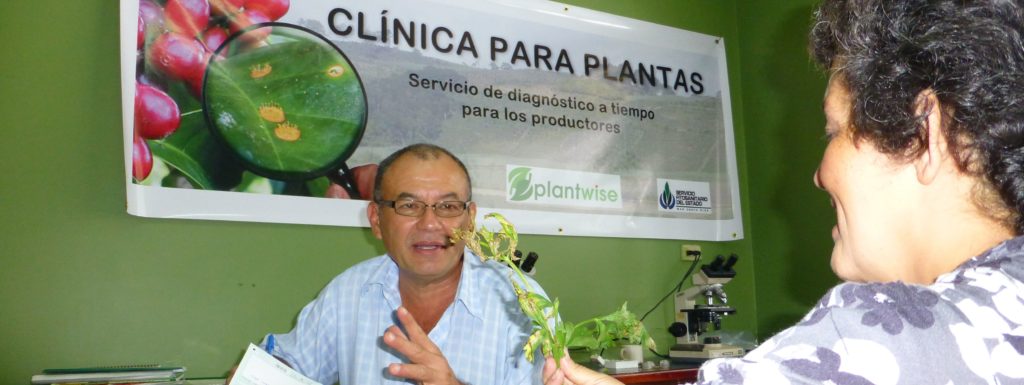Farmers helping farmers to solve crop problems in Nepal
A farmer has to organize a thousand things before getting the final returns from the crop they planted. Choosing the right season and variety of crop, managing the labour forces during the critical crop periods, water management or waiting for rainfall, crop nutrient management, harvesting the crops, managing the post-harvest losses, and then finally selling…
Plantwise impact – what have the last eight years taught us?
Eight years ago, in 2011, CABI launched its Plantwise programme, an ambitious endeavour, which has involved more than 200 partner organisations in 34 countries across Asia, Africa and the Americas since inception. Plantwise became CABI’s flagship programme and quickly caught a lot of attention due to its innovative, system-oriented approach to deliver practical plant health advice to smallholder farmers.
Exploring the “art” in “climate-smart”
Originally published on CGIAR CCAFS Art has a place in climate discussions. Children, who are usually deemed too young to understand complex topics such as climate change must be involved as well. A campaign with the theme “Climate Change: Youth Can Do Something” was organized on 7 October 2018 in Tra Hat Climate-Smart Village (CSV)…
How does communication and its technical content shape farmer responses to plant clinic advice?
A recent study led by CABI and published in International Journal of Agricultural Sustainability, explores how communication and its technical content shape farmers’ response to advice delivered at plant clinics. How willing were farmers to accept or reject the technologies recommended at plant clinic consultations? And what were the reasons? The research was carried out…
Plant Doctors in Vietnam go digital
Plant clinics in Vietnam have received a major boost with the introduction of digital devices to facilitate the work of plant doctors. The use of tablets and smartphones has been proven to help plant doctors improve the quantity and quality of data generated from plant clinic operations. With improved ICTs, the captured data from plant…
Photo story: e-plant clinics in Sri Lanka
E-plant clinics in Sri Lanka were launched in June 2015. Since then 190 Plant doctors have been trained and equipped with tablets, with the Sri Lankan Ministry of Agriculture funding half of the total number of tablets themselves. Being equipped with tablets means Plant doctors give higher quality recommendations, and the data collection process is also…
Plantwise Vietnam training on data validation, processing and analysis
Reblogged from Vietnam Academy of Agricultural Sciences news During 3-day training workshop, participants learnt how to validate Plantwise diagnoses and recommendations and how to analyze data from Vietnam stored on the Plantwise Knowledge bank. This activity is useful and necessary for the staff working in plant protection because they can examine and evaluate skills and…

